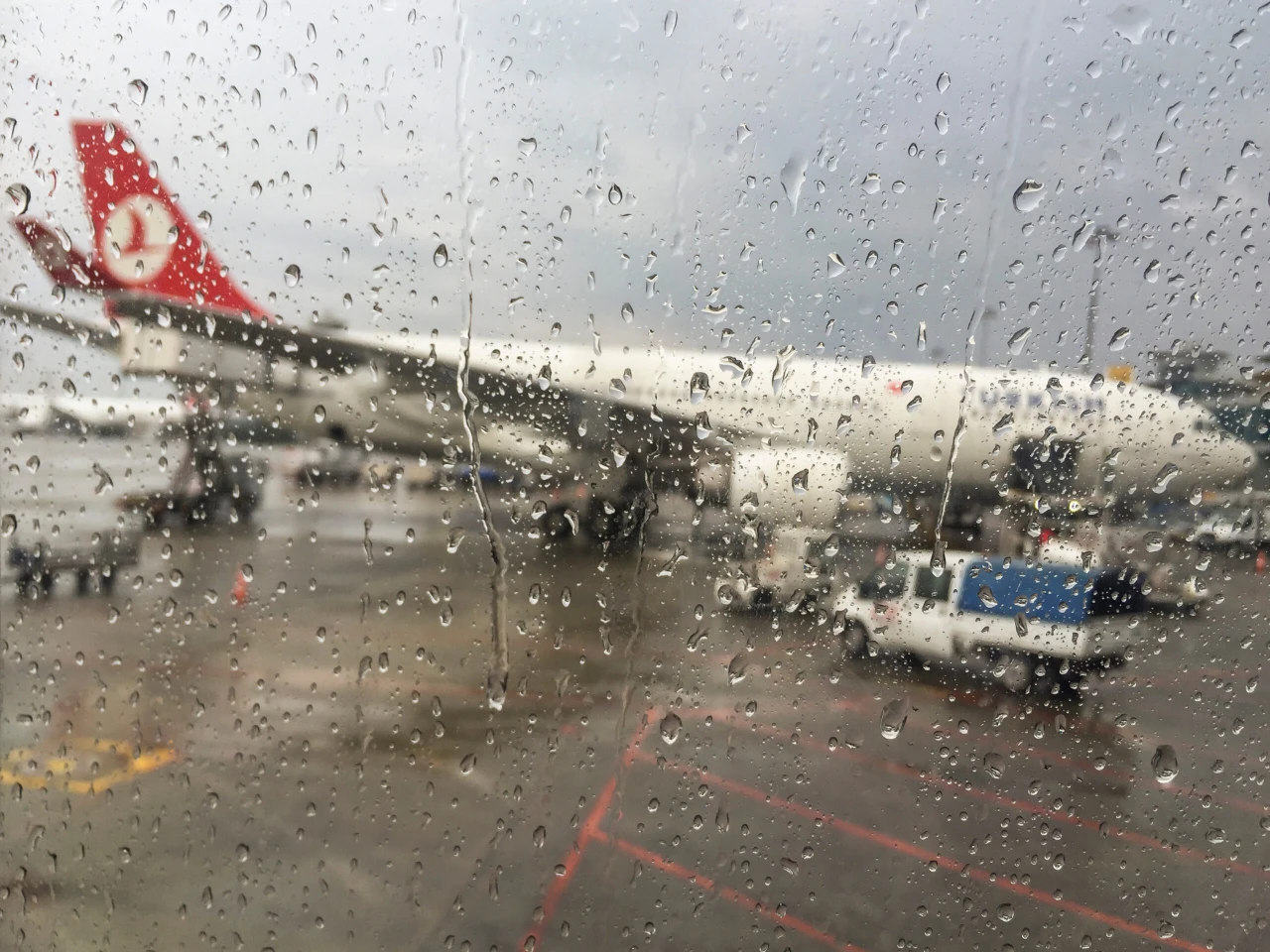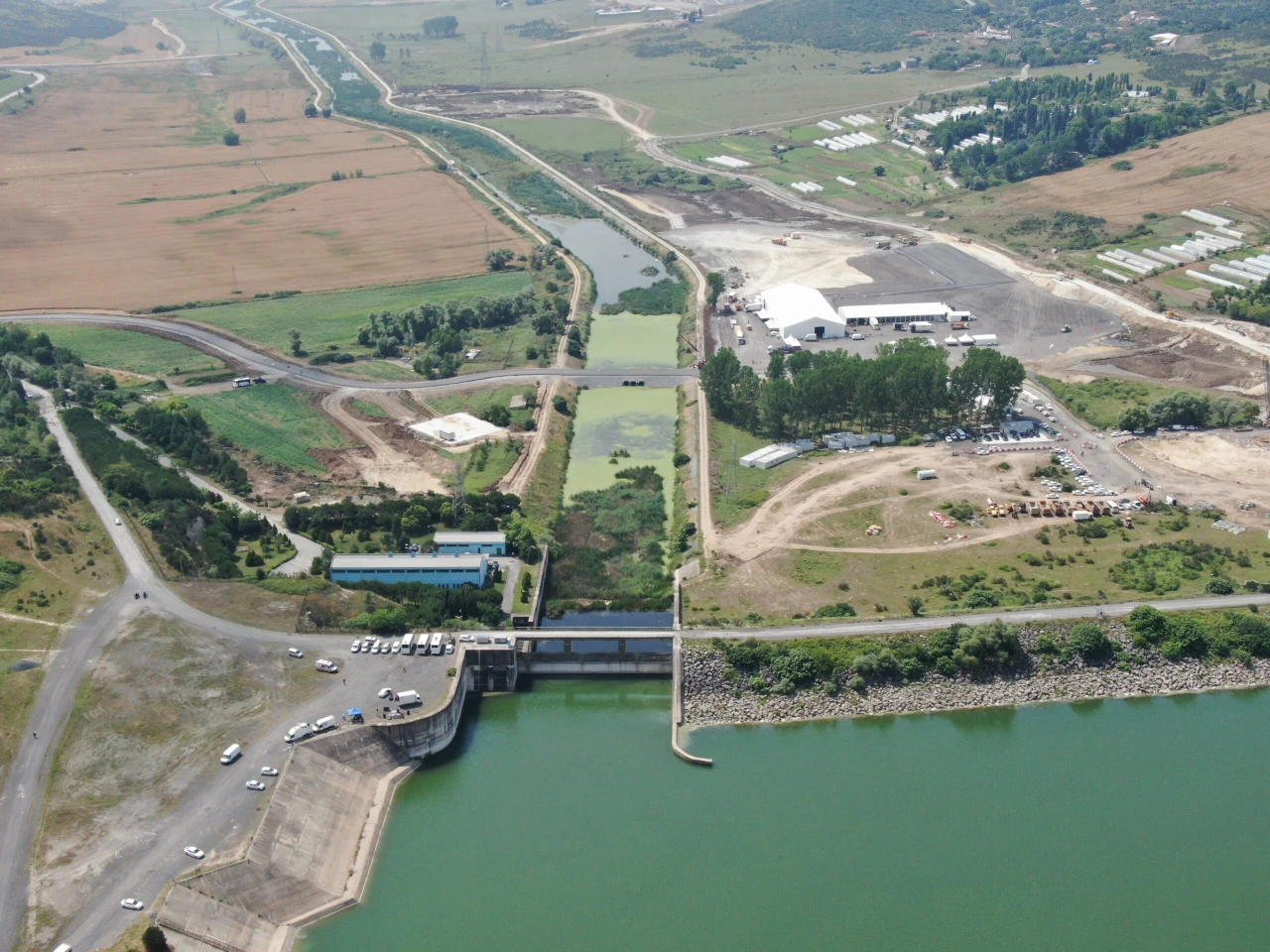Heavy snow and fog force planes to circle at Istanbul Sabiha Gokcen Airport
 File photo shows a blurred view of a Turkish Airlines aircraft parked at the gate through an airport window covered with raindrops, accessed on February 5, 2025 (Adobe Stock Photo)
File photo shows a blurred view of a Turkish Airlines aircraft parked at the gate through an airport window covered with raindrops, accessed on February 5, 2025 (Adobe Stock Photo)
A major winter weather event threw Istanbul’s air traffic into chaos on Monday, as multiple commercial aircraft were forced into extended holding patterns above Sabiha Gokcen Airport (SAW), marking a significant disruption at Türkiye’s second-largest aviation hub.
The weather system split Istanbul into two distinct zones, creating a scenario where portions of the metropolis were blanketed in heavy snow while others disappeared under dense fog. This meteorological phenomenon forced pilots to abort their landing attempts and return to holding patterns above the city.
The incident was documented through air traffic control radio communications, as controllers worked to manage multiple aircraft circling above the airport. These recordings captured the ongoing situation as flights dealt with the deteriorating conditions.
Following meteorological authorities’ warnings, the airport saw approximately 20 percent of scheduled Istanbul flights canceled. The disruption rippled through the airport’s operations as visibility continued to deteriorate throughout the day.
The weather event particularly impacted SAW Airport, which serves as a transportation hub on Istanbul’s Asian side. Aircraft were kept in holding patterns until conditions improved to acceptable levels, creating a complex aerial situation above Istanbul as multiple planes awaited clearance for landing approaches.
As conditions eventually improved, aircraft were able to complete their landings safely, though the morning’s disruptions continued to impact flight schedules. Weather monitoring services continued to track the system as it moved through the region, while airport authorities worked to normalize operations.
The snow and fog that enveloped different parts of Istanbul presented a unique challenge for aviation operations, highlighting how severe weather conditions can quickly escalate into major aviation disruptions, even at modern facilities.



